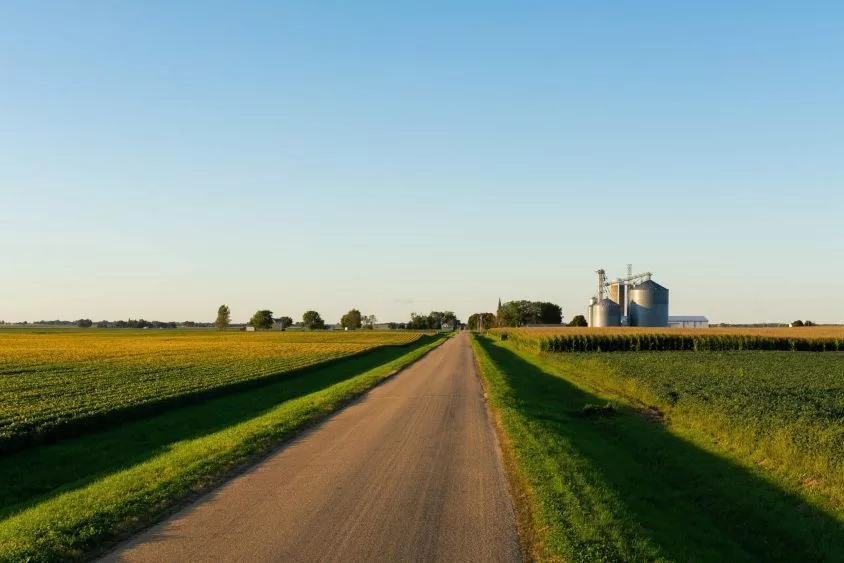(WASHINGTON D.C.) – U.S. Senator Roger Marshall, M.D. (R-Kansas), Chairman of the Senate Agriculture Subcommittee on Conservation, Forestry, Natural Resources, and Biotechnology, and U.S. Senator Michael Bennet (D-Colorado), the subcommittee’s Ranking Member, introduced the Conservation Reserve Enhancement Program (CREP) Improvement Act. This bipartisan bill provides family farmers and ranchers the flexibility they need to conserve water on working lands, while fairly compensating them for retiring their water rights or limiting their water use.
The CREP Improvement Act also explicitly directs the U.S. Department of Agriculture (USDA) to allow dryland farming on CREP land and ensures fairer compensation payments to producers.
“As Chairman of the Subcommittee on Conservation, Forestry, Natural Resources, and Biotechnology, I’m proud to partner with Ranking Member Senator Bennet in advancing a strong, bipartisan response to the water crisis we are facing out West,” said Senator Marshall. “The CREP Act is much-needed legislation that will provide Kansas farmers and ranchers the flexibility they need to preserve our water supply for generations to come and receive fair compensation in doing so.”
“Colorado’s family farmers and ranchers face a 1,200-year drought, a changing climate, and a hotter and drier future. We must ensure that USDA’s conservation programs live up to their potential. This bipartisan bill will give farmers the flexibility they need to conserve water, protect their way of life, and pass their operations on to future generations of Coloradans,” said Senator Bennet.
The legislation is cosponsored by U.S. Senators Jerry Moran (R-Kansas) and John Hickenlooper (D-Colorado).
BACKGROUND:
The Conservation Reserve Enhancement Program (CREP), part of the Conservation Reserve Program (CRP), leverages federal and non-federal funds to target specific state, regional, or nationally significant conservation concerns. Traditionally, it has provided farmers and ranchers with payments to remove land from production in order to address specific conservation concerns. Each CREP is unique, and in drought-prone regions in Kansas, Colorado, and across the West and the Great Plains, CREP is used primarily to voluntarily reduce water consumption on farmland.
However, the CREP program has not always worked as intended, and producers have sought more flexibility to achieve CREP goals while allowing for alternative water conservation practices and fairer compensation for enrollment in the program. While the 2018 Farm Bill included a provision to allow dryland farming on retired irrigated acres in CREP, USDA still has not implemented this provision fully, and payments on dryland farmed acres are insufficient to encourage participation in key regions where water conservation is a top concern. As we look ahead to the next Farm Bill, adjustments to the CREP program will seek to improve flexibilities for farmers participating in the program and advance water conservation efforts.
Specifically, the Conservation Reserve Enhancement Program Improvement Act would improve the program by:
- Explicitly directing USDA to allow dryland agricultural uses on CREP acreage where appropriate;
- Specifically adding dryland crop production and grazing to the list of appropriate conservation practices for the CREP program;
- Allowing continuous cropping systems, like alfalfa, to be eligible for drought and water conservation CREP agreements;
- Ensuring fairer payments to producers by stipulating that annual payments for drought and water conservation CREP agreements will be equal to the difference between the irrigated acre payment rates and the dryland acre payment rates, as determined by USDA;
- Ensuring that any drought and water conservation agreement that includes the permanent retirement of a water right receives the full irrigated acre payment rate;
- Making the payment formula retroactive for existing drought and water conservation agreements;
- Letting producers choose their payment allocations under the program, instead of a fixed payment per year for the 10-15-year contract period; and
- Waiving CREP payments from the $50,000 annual payment limitation under the Conservation Reserve Program.
Click HERE to read the full bill text.
SOURCE: Press release from Senator Marshall
